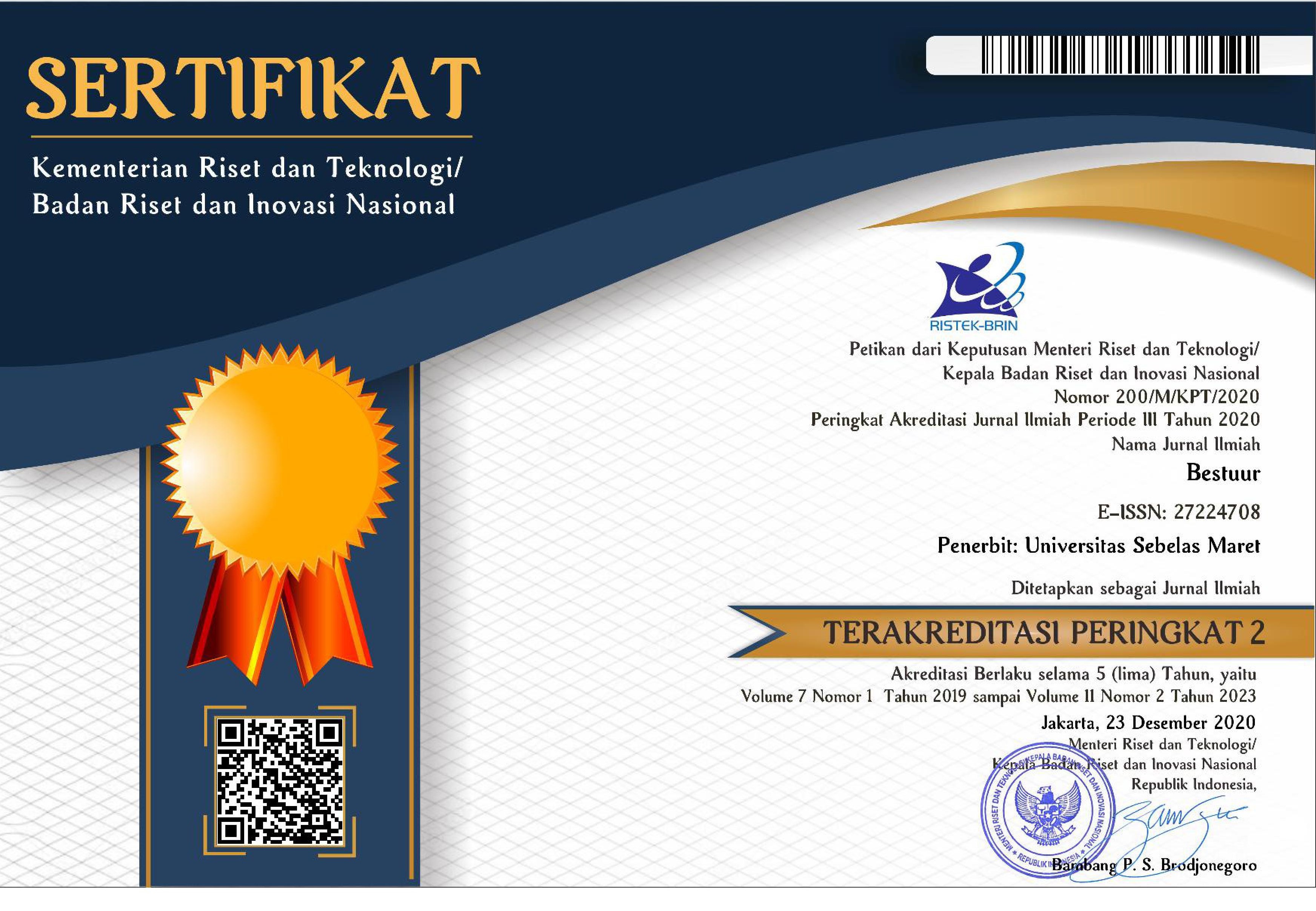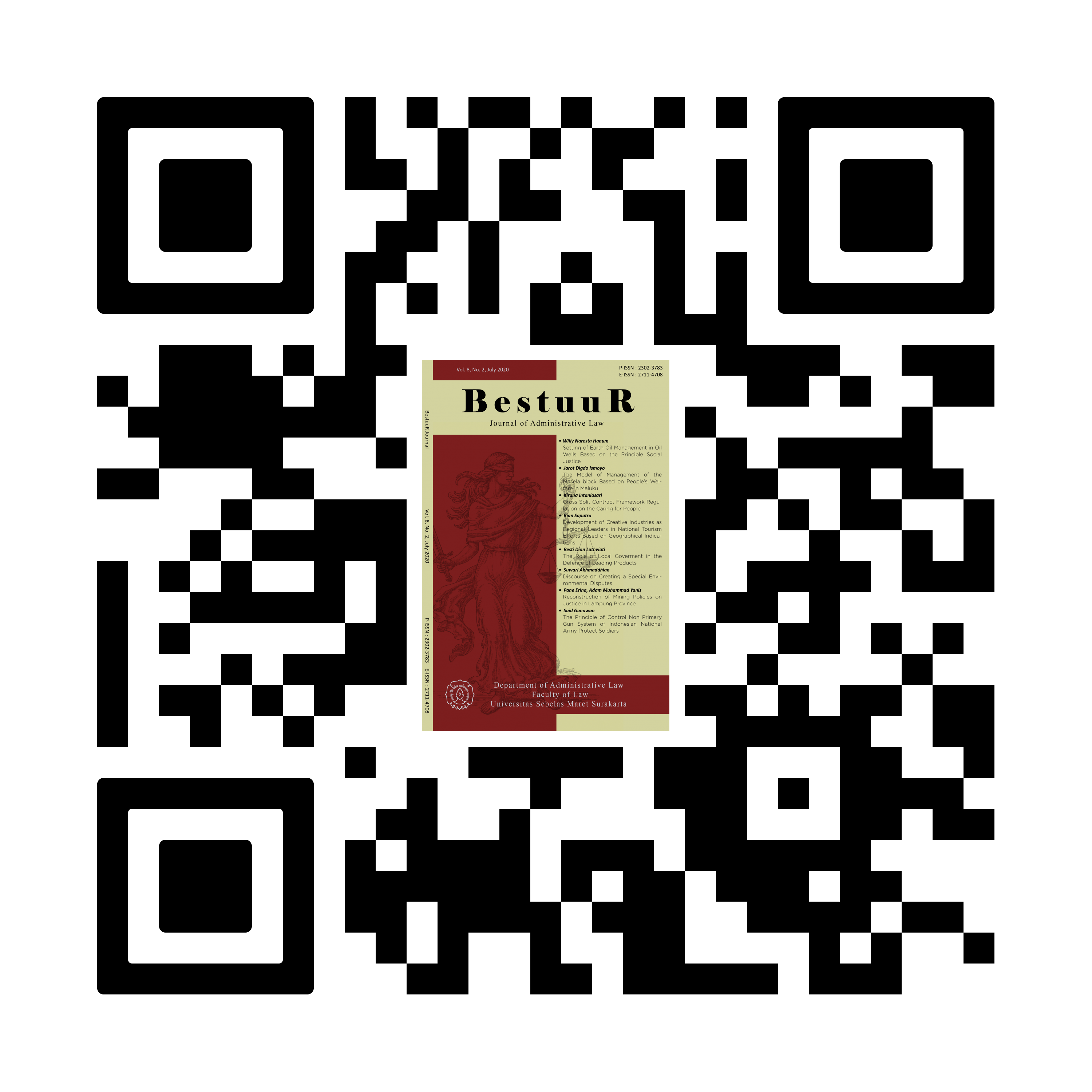A. | GENERAL REQUIREMENTS |
| Authors should submit only manuscript that have been carefully proofread. The manuscript is a scientific paper from research results or conceptual ideas. Written in English. It is an original (no plagiarism) and has never been published in other media. |
| |
B. | WRITING RULES |
| 1. | The manuscript is written maximum 20 pages using Time New Roman font size 17 with 1.0 spacing on A4 size. More details see journal template! |
| 2. | Systematics of scriptwriting research results include: |
| a. | Title |
| The title uses an effective sentence with a maximum 15 words |
| b. | Identity of Author |
| | · Author's Name · Affiliation · E-mail (Listed e-mail should be active because of the correspondence by e-mail) -Note: we only receive for maximum 5 (five) authors that consist of minimum two different countries (should be international collaboration) |
| c. | Abstract |
| Abstract contains a brieft introduction to the problem, objective of manuscript, research methods and a brieft summary of result. Abstract is single-spaced typed in English maximum 200 words. Written with Time New Roman (10 Pt). |
| d. | Introduction |
| The introduction should be clear and provide the legal issue to be discussed in the manuscript. Before the objective, author should provide an adequate background, and very short literature survey in order to record existing solutions, to show in which is the best of previous researchers, to show what do you hope to achieve (to show the limitation), and to show the scientific merit or novelties of the manuscript. At the end, you should explain the urgency and clearly state aims of your study. At the end, you should explain the urgency and clearly state aims of your study and mention problem of the research in this section. |
| | | |
| f. | Research Methods |
| This method is written in descriptive and should provide a statement regarding the methodology of the research, include the type of research, research approach, a source of data and analysis method. The author should explain the mechanism to analyze the legal issue. This method as much as possible to give an idea to the reader through the method used, this method is optional, only for an original research article.
(For Conceptual Ideas Without Research Method) |
| g. | Results and Discussion |
| Results should be clear and concise. Discussion should explore the significance of the results of the work, not repeat them. Avoid extensive citations and discussion of published literature. More details see journal template! |
| h. | Conclusion |
| The main conclusions of the study may be presented in a short Conclusions section. The conclusion section should lead the reader to important matter of the manuscript. |
| i. | Acknowledgment |
| [OPTIONAL]. This is used to appreciate the efforts of associate, who are not registered as co-authors, for their assistance and fund for your research/publication. |
| j. | References |
| References are based on article citations. More details see journal template! |
|
C. | REFERENCES |
| - Expect a minimum of 40 references primarily with a minimum of 80% to journal papers published between 2015 and 2022.
- Use of a tool such as Zotero, Mendeley, or EndNote for reference management and formatting, and choose style modern humanities research association 3rd edition style
Example: Equipping residential rooms with refrigeration equipment, fans, televisions and/or electronic devices is prohibited for inmates. In Article 5 letter B of Law no. 12 of 1995 which says "equality of treatment and service"10 it is very clear that an inmate has the same rights and obligations, no distinction from each other. This is carried out based on equal treatment and service in the correctional development system, namely the provision of equal treatment and service to Correctional Residents without discriminating against people. While in Article 28 paragraph (3) government Regulation No. 32/1999 on the Terms and Procedures for the Implementation of Correctional Residents, stating that Inmates and Correctional Students are prohibited from bringing television and radio or other electronic media into prison for personal gain. Violations committed by inmates have luxurious room facilities also contrary to Article 4 of the Regulation of the Minister of Law and Human Rights of the Republic of Indonesia No. 6 of 2013 on the Code of Conduct of Correctional Institutions and State Prisons in letter I which says each inmate is prohibited from equipping residential rooms with refrigeration devices, fans, televisions, and/or other electronic devices, and in the letter J possesses, carries and/or uses electronic devices, such as laptops or computers, cameras, recording devices, mobile phones, and the like. The poor prison conditions in Indonesia are well below the UN minimum standard rules for the treatment of inmates or known as the Nelson Mandela Rule. This Mandela rule requires the availability of basic needs and services in accordance with national standards. The standard stipulated by the Ministry of Health for calorie intake per person is between 2,475-2,725 kilos of calories, but prisons in Indonesia are only able to provide 1,559 to 2,030 kilos of calories due to a low budget. The grocery budget for inmates in Indonesia is USD $ 1.5 per inmate per day or about Rp15,000 per inmate per day for health services, each inmate only gets a budget of USD $ 1.2 per years or about Rp1,000 per month. An inmate needs to share a cell with 6-7 others in a cell designed for 3 people only. They eat, sleep, and defecate there. If the inmates are without any financial support, life will be very heavy. References |
| | |











_CROSREF.jpg)




